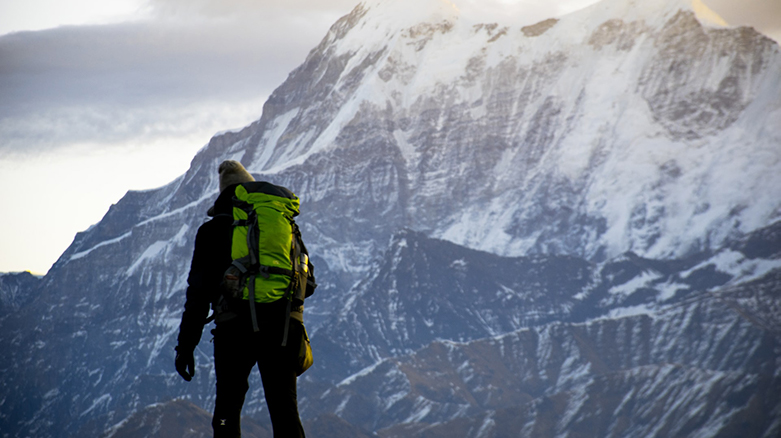The report shows that over four million people in the UK consider themselves hillwalkers, and this figure is still growing steadily. Why mountain hiking is indispensable to the lives of many British people?
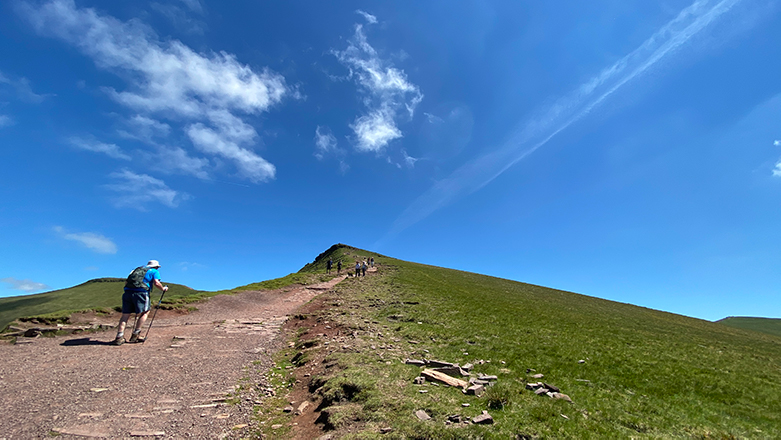
The open moorland, the idle sheep grazed in the meadows, and the flocks of crows hovered over trees, this is what I saw when I followed the narrow footpath towards the top of Pen y Fan, the highest point in southern Britain. I had to keep going, as stopping to rest on the road would have blocked the climbers behind me.
This was my first mountain walk experience in the UK. Along the way to Pen y Fan, I met many local mountain walkers of all ages. The young people with professional equipment try to run the whole way up the mountain, the old people walked with their lovely dogs and there were also many children of about 10 years old on the trail.
No matter what age groups they are, they looked relaxed, skilled and familiar with climbing mountains than us. Many of them told me that they are regular visitors to this trail, they know the mountain well because they walk the hill nearly every week.
“I’m a very enthusiastic hill walker,” said Kate Gilliver, the Reader in Ancient History of Cardiff University and a member of the local mountain rescue team. “I’m certain once or twice a month, and virtually every holiday I take to the hills, usually to Scotland to the Scottish mountains.”
“I think many British people are obsessed with mountaineering because it is an opportunity to get away from more built-up areas and to get away for peace, quiet and uncultivated place,” said Kate.
“It’s not like going to the park or to the beach which is heavily impacted by human interference. Britain is quite a crowded island, so to be able to get away from the city and find a bit of peace in the hills. I think it’s quite important,” Kate added.
When I walked in the mountain, I was far away from the noise of the city. The bleating of sheep and birdsong replaced the sound of car horns, the fresh air and mountain breeze made me feel delighted.
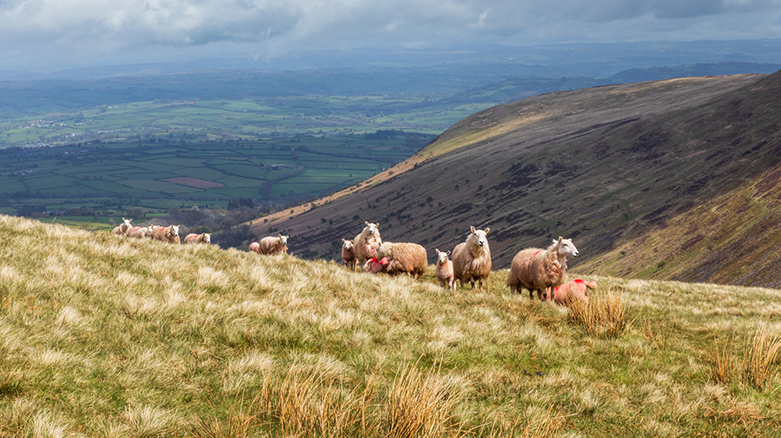
Kate thinks mountaineering is also a way to maintain mental health, she said: “I think in Britain, people feel that there is a connection between getting out into the hills and mental wellbeing. I find when I go into the hills, all the stress of work just switches off and all I am doing is enjoying myself and I do not think about work at all. I think that’s something a lot of people appreciate.”
That may explain why many people consider mountaineering as a painful but pleasurable activity. I spent about two hours reaching the peak of Pen y Fan, gazed at the road we passed on the way in. The strong sun was blinding me, my thighs were aching and the heavy wind at the peak blew off my baseball cap, but I did not have the strength to pick it up.
My physical body was tired, but I felt more relaxed than ever. All the worries from work and life were left behind and the only thing that came to my mind was to keep going and discovering the view I have not seen before.
While relaxing and enjoying yourself are the fascinating features of mountaineering, another reason for its widespread growth in the UK is the long history of this activity in the country.
Around the 18th century, the first ascent of Mont Blanc marked the start of modern mountaineering. Since then, climbing Alpes has become a great honour, whether for scientific purposes or simply for expeditions. All the peaks of the Alps have now been climbed, most of them were firstly climbed by the British.
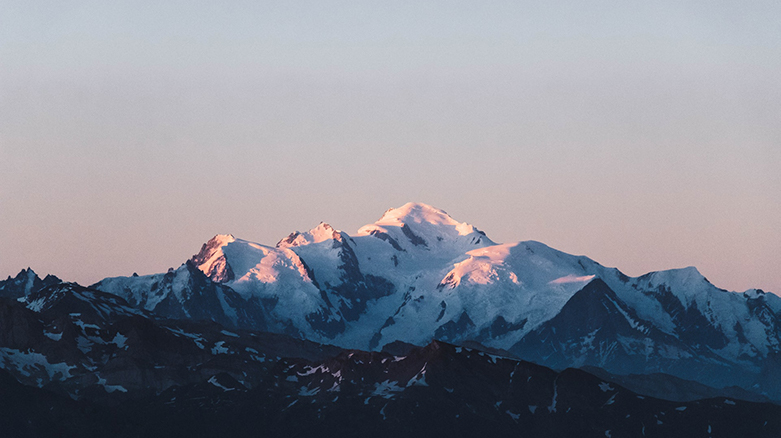
“In Britain, mountaineering first started becoming a leisure activity during the Victorian period in the 19th century. The wealthier people such as the gentlemen and women in this period went off to walk in hills, then they went to the Alps and hired guides to take them up mountains,” said Kate.
Kate thinks there has always been an element of people who are not so wealthy may copy what the wealthy people are doing. “So that may have encouraged people to do the same as the wealthier people who climb mountains,” she added.
The 20th century saw a boom in mass mountaineering in the UK, which was also linked to the economy and employment rates at that time. During the 1930s when many countries in the world were experienced economic depression, there was instead a surge in hill walking. Also, in the 1980s, lots of people developed an interest in hill walking when there was a period of high unemployment rate in the UK.
“It may because the interest in climbing hills and mountains didn’t really start to develop until people had a little bit more spare time,” said Kate. “And that is why mountaineering has really taken off during the times of higher unemployment. It is particularly important as weekends have become enshrined in people’s expectations and rights, you have that weekend, and you can go off to do something with your families or friends.”
Having a tradition of outdoor activities is another important reason why mountaineering has been able to develop steadily in the UK. Most British people start involving in outdoor activities when they are at schools and then they gradually got into the habit of camping, hiking and mountain walking.
When I walked toward the peak of Pen y Fan, I found there are also many children of about 10 years old on the same road walk to the peak. Compared to our exhausted state, they weaved in and out of the footpath, even bouncing on the protruding rocks, their rich experience in hill walking and physical strength allows them to climb the steep trails with ease.
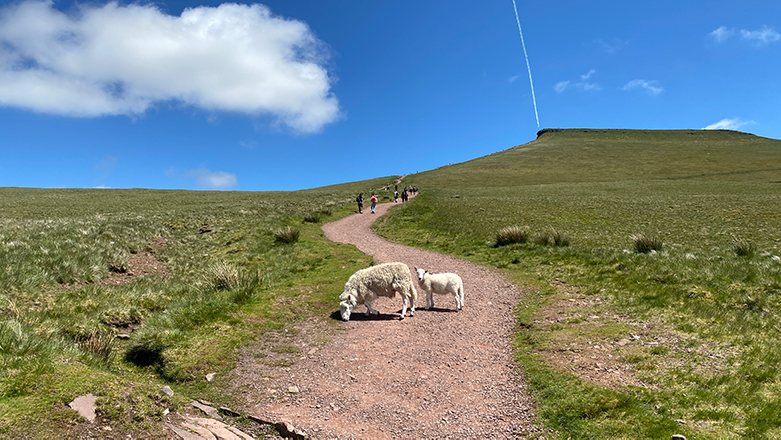
Kate shared her experiences of joining outdoor activities when she was young. “When I was 16, a group of my class were taken to the Dartmoor National Park for a week where we did hill walking, sailing and climbing. That was presented as a reward at the end of the school year.”
“We also have the Duke of Edinburgh’s Award Scheme, which is a sort of citizenship scheme for young people between the ages of about 14 and 22. And part of this scheme includes an expedition. So, you must go on a walk for three or four days, camping, do your navigation and work with your maps. I think that might be one of the things that encourage people to get into the outdoors,” said Kate.
The numerous scenic national parks are also a factor in attracting people to the mountains. The Peak District National Park in England, Snowdonia National Park in Wales, and Brecon Beacons National Park where the Pen y Fan is located. The establishment of 14 national parks in the UK has made these areas of focus for people to visit. In national parks, people can visit rivers, waterfalls and walk in the mountains.
The mountains in these national parks not only have spectacular views but also contain historical sites such as the summits of Pen y Fan and Corn Du, which were used as burial grounds in the Bronze Age.
So, when I retraced from the summit, I was able to look at these historical sites closely. These cairns add to the mystery of the hill, made me begin to imagine the lives of the people who lived here during the Bronze Age and cannot wait to embark on the next new mountain hiking.
